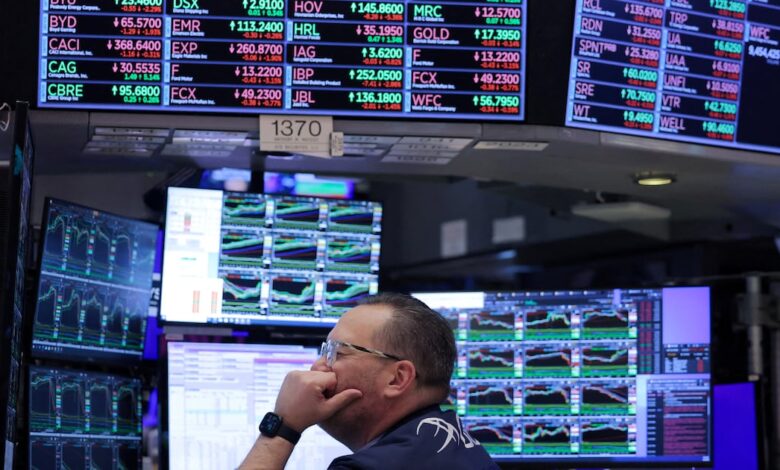Global stocks tumble as valuation fears grip markets

Asian stocks dived on Wednesday and market volatility surged to levels not seen since April after an overnight tech-led sell-off on Wall Street heightened concerns over stretched valuations.
Sellers were particularly harsh on both the Japanese and South Korean markets with Tokyo’s Nikkei tumbling 4.6 per cent and down almost 7 per cent from a record high reached on Tuesday.
South Korean shares plunged as much as 6.2 per cent, before recovering slightly. “It’s probably just time to take pause on the equity market rally we’ve had. It’s been all one-way for a while,” said Jason Wong, senior market strategist at BNZ in Wellington.
Around the region MSCI’s broadest index of Asia-Pacific shares outside Japan was down 1.2 per cent. The losses over two sessions exceeded 2.3 per cent and are the heaviest since US President Donald Trump’s Liberation Day tariff announcement roiled markets in early April.
US e-mini futures were down 0.3 per cent in Asia after a 1.2 per cent drop for the S&P 500 overnight. Nasdaq futures fell 0.4 per cent and European futures were down 0.9 per cent.
In Japan, shares in SoftBank Group dived more than 10 per cent as one of the world’s biggest tech sector investors tracked a 2 per cent drop in the Nasdaq overnight. A slew of other chip and cabling companies also took a beating with 10 per cent drops.
“It’s a sea of red across broad markets,” said Chris Weston, head of research at Pepperstone Group in Melbourne.
Record rally faces test
Stocks are retreating from record highs struck despite sticky inflation, elevated interest rates, a drawn-out shutdown of the US government and tariff-driven trade uncertainty.
On Tuesday, chief executives of Wall Street heavyweights Morgan Stanley and Goldman Sachs questioned whether sky-high valuations can be sustained. South Korea’s exchange also issued a caution on the stock of chipmaker SK Hynix after its value had tripled over 12 months.
Investors’ overnight reaction to better-than-expected revenue and an improved outlook at data and AI company Palantir Technologies, which tumbled 8 per cent, highlighted the fresh doubts about the rally’s longevity.
Palantir stock fell another 3 per cent after the bell in New York, though it is still up more than 150 per cent so far in 2025.
That outpaces even AI poster-child Nvidia, which has gained nearly 50 per cent in a market that is so frothy it has begun to draw comparisons to the dot-com bubble.
Palantir traded at nearly 250 times its 12-month forward earnings estimates.
“At some point, profits need to be booked. Especially when we’ve seen repeatedly solid runs to record highs,” said Matt Simpson, senior market analyst at StoneX in Brisbane.
China steady, Yen and bonds firmer
Chinese shares steadied with the CSI 300 mostly flat after a private sector gauge of service sector PMI activity expanded at its slowest pace in three months.
The dollar dropped 0.2 per cent against the yen to 153.36 after the release of minutes from the Bank of Japan’s September policy meeting.
The dollar index, which tracks the greenback against a basket of currencies of other major trading partners, edged back after touching a five-month high of 100.25.
The yield on benchmark 10-year Treasury notes edged lower to 4.058 per cent compared with its US close of 4.091 per cent on Tuesday.
The European single currency held steady at $1.1487 after hitting a three-month low following five straight days of declines.
Brent crude was last 0.6 per cent lower at $64.05 per barrel.
Bitcoin and gold
Bitcoin fell below $100,000 for the first time since June and was choppy afterwards, with the cryptocurrency last up 1 per cent at $101,233.90.
Gold rebounded after three consecutive days of losses, and was trading 0.2 per cent higher at $3,938.54 per ounce.





